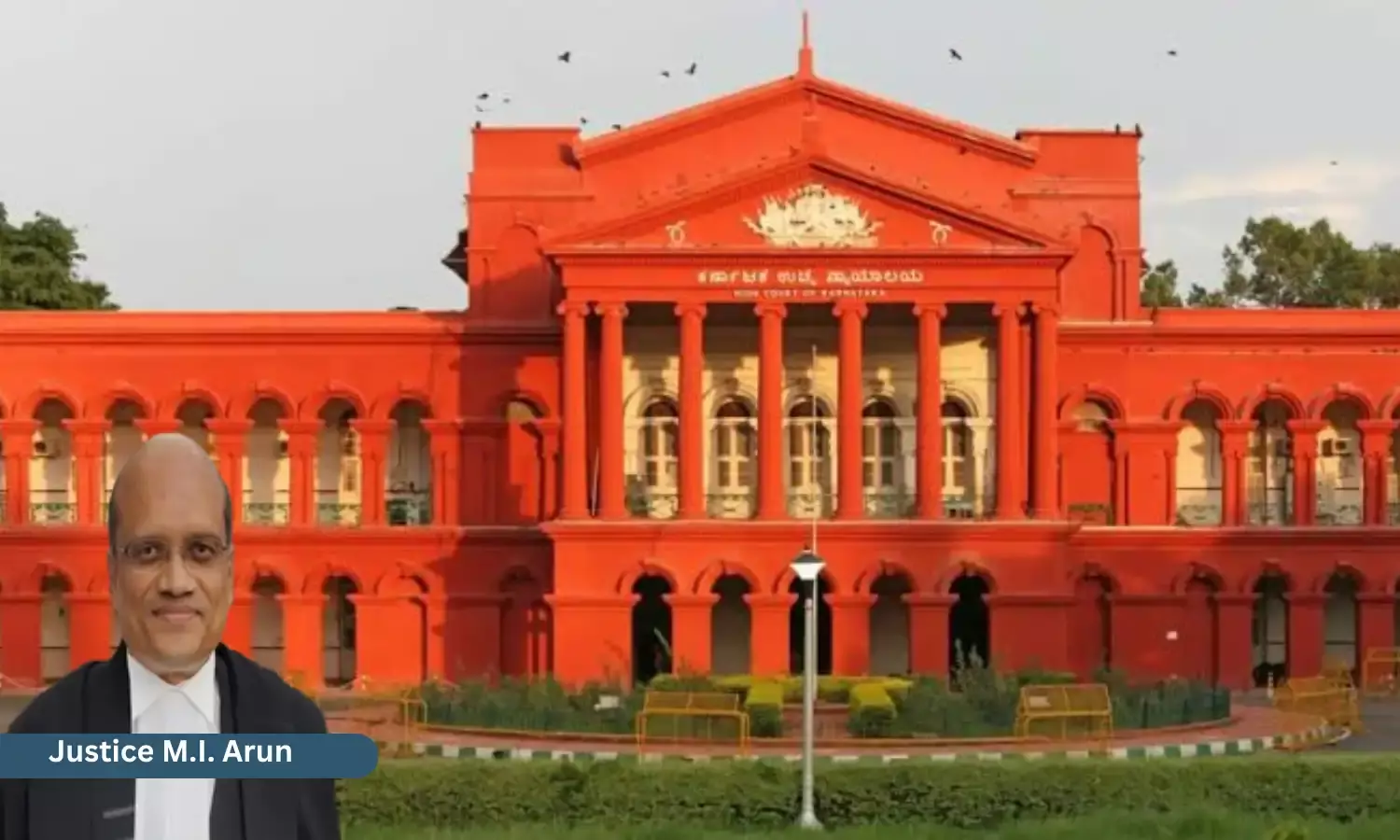Madiga Community Cannot Be Forced to Perform Traditional Acts They Despise: Karnataka High Court
The Karnataka High Court considered a Writ Petition to ban public festivities including ‘Alai Bhosai Kunitha’ during Muharrum festival in Tumkur village.

Justice M.I.Arun, Karnataka High Court
The Karnataka High Court observed a community has a right to celebrate a festival without provoking the other communities. However, a particular community (Upper caste Hindus) cannot force another community (Madiga Community) to do an act, which they despise, only on the ground that it has been done traditionally by them.
The Writ Petition was filed by an organisation of the Madiga Community in the light of rising communal disharmony between the upper caste Hindus and Madiga community, which resulted in communal clashes.
The Bench of Justice M.I. Arun observed, “The salvation of the country lies in identifying human being as a human being and as an Indian with the other identities playing a secondary role. It is unfortunate that a Muslim festival, which is being celebrated harmoniously by both Hindus and Muslims has resulted in communal clashes between upper caste Hindus and the Dalits.”
Advocate Vinay Swamy C represented the Petitioners, while Advocate Mallikarjun Sahukar represented the Respondents.
Case Brief
The Petitioner contended that Tumkur village in Vadagera Taluk of Yadgiri district, Karnataka is one such place where the Hindu Deity called Kashimalli is worshipped by both Hindus and Muslims during Muharram festival and the festival is also celebrated by a folk dance called ‘Alai Bhosai Kunitha’ in front of the village temple.
During the festivities, the Madiga Community beat halige (a type of percussion instrument). It was the contention of the Petitioner, an organisation of Madiga Community that they were being made to beat the instrument because they were untouchables and for that reason, they stopped beating the it, but took part in the festivities. Resultantly, there was communal disharmony between the upper caste Hindus and Madiga community.
The State also submitted that it is not advisable to go ahead with Muharram festivities in Tumkur village, Vadagera taluka, Yadgiri district in the light of the prevailing circumstances.
Court’s Analysis
The Karnataka High emphasised that the salvation of the country lies in identifying human beings as a human being and as an Indian with the other identities playing a secondary role.
“The issue involved is, whether under the prevailing circumstances is it possible to maintain law and order without there being violence or communal clashes during the festivities. The State should promote festivities, which spreads the message of peace and communal harmony between several communities, but, however, when it is not possible, the decision is best left to the State authorities and in the present circumstances, the State authorities are required to decide whether the festivities are required to be gone ahead with or not.”, the Court held.
Additionally, the Court emphasised that even if the festivities are allowed, no one can compel the Madiga community to beat the halige (a type of percussion instrument) and it would be the duty of the State to give adequate protection for the participants
Cause Title: Madiga Dandora, Represented By Its, Rural Committee President V. The State Of Karnataka & Ors. (Neutral Citation: 2025:KHC-K:3397)
Click here to read/download Order.


